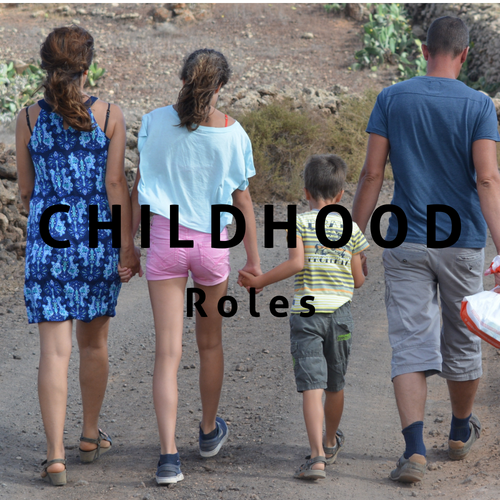John Brandshaw in his book, Healing the Shame that binds you, outlines a number of roles people play as children. If you are discovering you are still playing out that role, then perhaps these are a grow trap. For example, if you were the scapegoat in the family when things went wrong, do you still play that in the teams that you are with? If you were the peacemaker as a child, does that mean you’re not being assertive when doing deals, because you are trying to reduce conflict?
Which roles did you play?
I had one friend who struggled at work. She kepy being overlooked for progression, and her bosses kept taking the credit for her hard work. At school, she was the class clown and that continued at work. But it also meant that she was not seen seriously by her superiors. In fact, she often undermined herself by playing the fool just at the point to be serious. When we looked back at her previous roles, she had played the same role so changing jobs would not change her role alone. For her to progress, she needed to change this growth trap of being stuck in a childhood role.
Listed below are a number of roles children might play in their family. Which ones were you?
What were your childhood roles
- Caretaker
- Dad’s best buddy
- Dad’s dad
- Dad’s little princess
- Dad’s surrogate spouse
- Enabler
- Family Sacrifice
- Hero
- Lost Child (Get lost)
- Mediator
- Mum’s best friend
- Mum’s little man
- Mum’s mum
- Mum’s surrogate spouse
- ‘Nice-guy I People Pleaser
- Offender
- Peacemaker
- People Pleaser
- Problem Child
- Rebel
- Scapegoat
- Star
- Super achiever
- Underachiever
- Victim
Life is the movie you see through your eyes. It makes little difference what’s happening there. It’s how you take it in that counts
Dennis Waitley, author The Psychology of Winning
How do you break from those childhood roles?
- Become Awareness – if you are aware of what roles you used to play, you can recognise them happening now
- Identify the situations – see where you normally fulfil those roles. at home. or at work or with friends.
- Develop Strategies BEFORE the situation – we will go into our default mode when we hit a stressful situation, so we need the new strategies beforehand. It’s worth developing them and playing them out with a mentor, so you’re confident to try them. It will also identify self-limiting beliefs or life-rules that you follow, when you say ‘that won’t work’, because it works for others.
- Try something new – the situation won’t change unless you change the situation. So try the new strategy, and try again – because it might not work the first time, or others will feel confused that you didn’t respond as you normally did.
- Persevere – It’s going to take time for others to see the change in you, and change their response. They might not even notice the change. By changing your behaviour, you’re changing theirs, and it takes time for both of you.
Children will invest as much energy as is needed to ensure the preservation of family harmony, even if it means sacrificing themselves to do so by developing psychological disorders
(Covitz, 1992),
